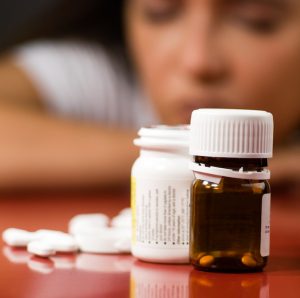Over 20 million people in the United States were diagnosed with Substance Use Disorder (SUD) in 2019, yet only 10% of these people received treatment. In 2021, an estimated 107,000 people died of drug overdoses, while every year 95,000 people are estimated to die from alcohol-related causes, making it the third-leading preventable cause of death in the U.S.
The USC Institute for Addiction Science (IAS) aims to revolutionize the way substance use is discussed, treated and prevented through a new Master of Addiction Science (MAS), the first degree of its kind to be offered at a major university, melding pharmaceutical, medicine and social work together. The new program, which recently opened enrollment for fall 2023, is a cross-disciplinary curriculum partnership between the USC Alfred E. Mann School of Pharmacy and Pharmaceutical Sciences, USC Suzanne Dworak-Peck School of Social Work, and Keck School of Medicine of USC Department of Population and Public Health Sciences.
“We’re expecting that the students who graduate from our program will be able to elevate the field, and really apply transformative change to the nature of addiction treatment in this country,” said Jennifer Lewis, associate teaching professor at the Suzanne Dworak-Peck School of Social Work and one of the collaborators in the development of the curriculum for the MAS degree. “We all need to recognize the complexity of addiction. None of us has the key to solving this tremendous social problem alone. The key is working together to make an impact.”
Breaking the barriers between disciplines
Treatment for addiction, like the majority of the health care system, is largely based on a siloed structure of specialists who each treat their own aspect of a patient’s addiction using only the tools within their discipline. The Master of Addiction Science seeks to create a new integrated system of care model that blends science-based disciplines together, providing practitioners with an ability to co-deliver treatment and prevention for greater impact and increased patient satisfaction, while also working closely with researchers to explore emerging scientific developments.
Students in the MAS program can choose courses spanning across 18 schools at USC, and an option to pursue clinical or research tracks. The MAS fits within USC’s priority to leverage cross-campus collaboration for both faculty and students, drawing on the strengths and perspectives of multiple disciplines to create solutions to challenging societal issues. MAS curriculum is focused on examining a wide variety of addictions — from opioids and alcohol to vaping and gambling — with myriad approaches to prevention and treatment. Students will develop the skills to translate research theory into clinical practice that is unique to an individual patient and their history, making it a true “bench to bedside” program.
“We are bridging the gap between science and practice. We’re able to bring together people who are out in the field as well as people who are in the lab and really build a conversation that makes for a better application of scientific evidence and real-world experience,” said Terry Church, assistant professor of regulatory and quality sciences at the USC Mann School of Pharmacy and Pharmaceutical Sciences and one of the lead MAS curriculum architects. “For me, it’s a great place to be a scientist because it allows me to build creatively from the ideas of others. It makes for a broad view and I think that’s truly how we’re going to solve some of these larger problems in the world.”
(…read more)


